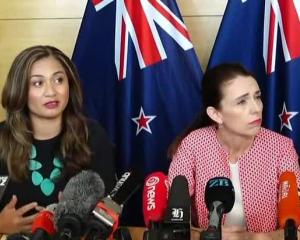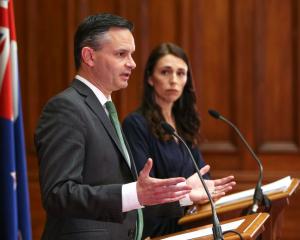

Dunedin’s reputation as a Labour stronghold had made it somewhat emblematic of the party’s collapsing support.
The pair’s respective Dunedin bases were jubilant on Saturday, despite disappointment with the overall result.
The Labour vote was 48% in both Dunedin seats, while National gained 28% in Dunedin North and 36% in Dunedin South.
The pair picked up about 7600 more votes than last time. An urban swing to Labour was felt in other places, too, but was much more pronounced in Dunedin. National’s vote is likely to slip further once special votes are counted, especially in Dunedin North. In 2011, National Dunedin-based list MP Michael Woodhouse reckoned Dunedin was no longer "staunchly red" after National narrowly received the biggest combined party vote across the two seats.
"We always knew there was a time coming where — a tipping point almost — where Dunedin would no longer be seen as a staunchly red city.
"I think we’re very close to, if not having already reached, that tipping point," Mr Woodhouse said at the time.
National did even better in 2014, helped by a boundary change that pushed Dunedin North further into rural areas.
But all that has changed, and the mood was downbeat at National’s Dunedin base on Saturday. It felt more like a meeting of party faithful than a party. It was a different story in Oamaru, where National’s Jacqui Dean broke out blue pom-poms to celebrate her 11,500-vote majority amid rural resistance to Labour’s planned water tax.
National commanded 55% of the party vote in Waitaki.
However, Labour’s share of the vote in Waitaki improved on 2014, increasing from 18% to 30%, largely at the expense of the Green Party. In Clutha Southland, National’s party vote share was 60%, and there, too, Labour’s vote improved at the Green Party’s expense. Labour made gains in Invercargill, too, but National was easily the biggest party with 49% of the vote.












